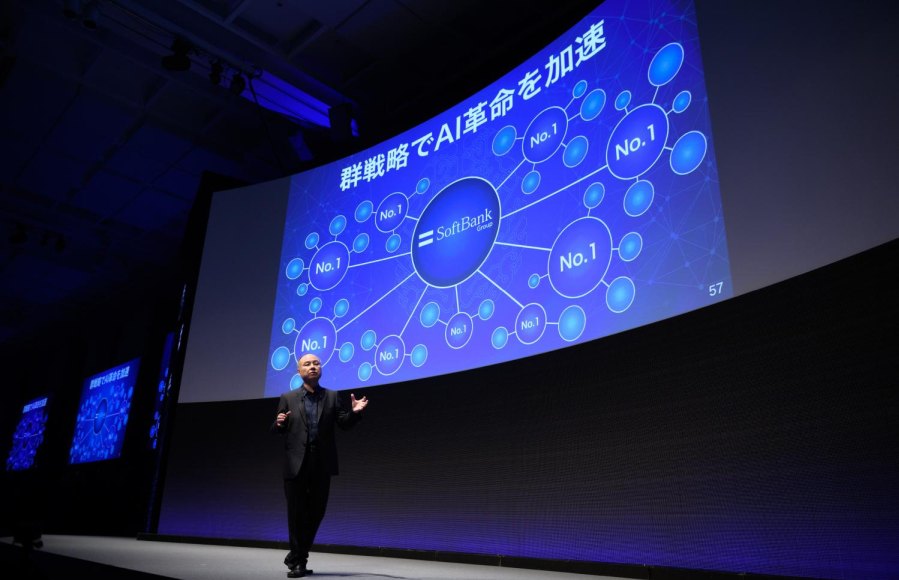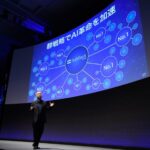SoftBank’s billion-dollar AI bet: Masayoshi Son’s mission to build artificial superintelligence

Masayoshi Son is once again swinging for the fences. The billionaire founder of SoftBank believes his company will sit at the center of the next big shift in technology—a shift he says will arrive within a decade.
For Son, the endgame is artificial superintelligence (ASI), a form of AI he describes as being “10,000 times smarter than humans.” It’s a bold prediction, but hardly out of character. Two decades ago, he poured $20 million into a young Chinese e-commerce startup called Alibaba. That bet turned into one of the most profitable tech investments in history, bringing in billions for SoftBank.
According to a report from CNBC, Son is now aiming to repeat that success—only this time, the stakes are bigger and the clock is ticking. Over the past few years, and with more urgency in the last two, SoftBank has been buying and investing in AI companies across the stack: chips, infrastructure, software, and applications. The goal is clear—make SoftBank a cornerstone of the ASI future Son sees coming.
This vision isn’t new. Alok Sama, SoftBank’s former finance chief and later president, recalls one of his first private conversations with Son. “I vividly remember the first time he invited me to his home for dinner and sitting on his porch over a glass of wine, he started talking to me about singularity – the point at which machine intelligence overtakes human intelligence,” Sama told CNBC.
Son himself has put it in deeply personal terms. “SoftBank was founded for what purpose? For what purpose was Masa Son born? It may sound strange, but I think I was born to realize ASI,” he said last year.
The aggressive push comes despite recent setbacks. Just six months ago, SoftBank posted a surprise $2.4 billion loss for the third quarter, hit by falling valuations in its Vision Fund investment arm. That hasn’t slowed Son’s AI ambition, which is now part of a wider strategy reaching into everything from search engines to supercomputers.
In March of last year, Bloomberg reported that SoftBank’s Vision Fund 2 planned to put between $10 million and $20 million into Perplexity AI, a U.S.-based search startup. That investment would be part of a larger $250 million round. And in March 2025, SoftBank announced plans to buy Ampere Computing, a semiconductor startup specializing in Arm-based server chips, for $6.5 billion. The deal is expected to close in the second half of 2025.
SoftBank has been making bigger moves in AI infrastructure, too. It recently partnered with OpenAI to develop enterprise AI solutions and is involved in Stargate, a $500 billion private AI investment initiative linked to President Donald Trump.
“SoftBank’s AI strategy is comprehensive, spanning the entire AI stack from foundational semiconductors, software, infrastructure, and robotics to… enterprise, education, health, and autonomous systems,” Neil Shah, co-founder at Counterpoint Research, told CNBC. “Mr. Son’s vision is to cohesively connect and deeply integrate these components, thereby establishing a powerful AI ecosystem designed to maximize long-term value for our shareholders.”
The company’s history in semiconductors goes back years. It acquired British chip designer Arm in 2016 for $32 billion and took the company public in 2023. Arm’s blueprints power nearly every smartphone on the planet, and its chips now sit at the heart of AI data centers, including systems built by Nvidia. Arm is currently valued at more than $145 billion.
Founded in 1981 by Son, Tokyo-based SoftBank started as a telecommunications and internet company. Today, it spans broadband, fixed-line services, e-commerce, tech, finance, media, and marketing. It is the sixth-largest telephone operator globally, generating $74.7 billion in annual revenue.
SoftBank’s Vision Fund holds stakes in some of the biggest names in tech and beyond: Alibaba, Uber, Arm Holdings, Fortress Investment Group, Boston Dynamics, Sprint, Yahoo Japan, Brightstar, Didi Chuxing, Ola, Renren, InMobi, Hike, Snapdeal, Fanatics, Improbable Worlds, Paytm, OYO, Ping An Insurance, Slack Technologies, WeWork, ZhongAn Online P&C Insurance, Compass, AUTO1 Group, Wag, Katerra, Cruise Automation, ParkJockey, Tokopedia, and many more.
The list is long, but the throughline is clear—Son has always been willing to make massive bets on the future. Whether his latest wager on ASI will pay off remains to be seen, but in typical fashion, he’s going all in.




